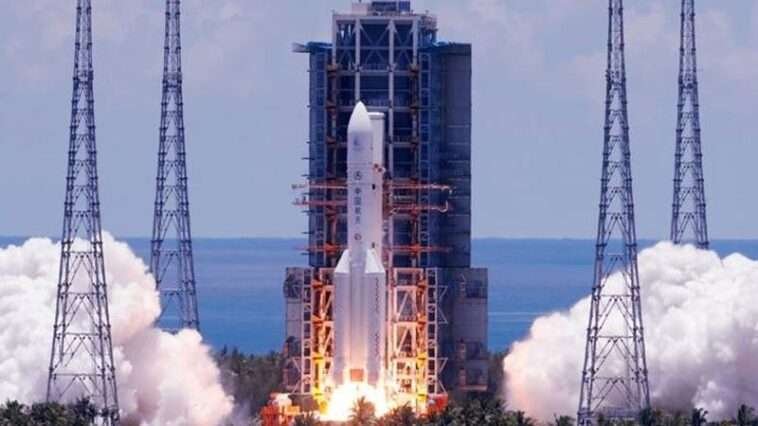As the global space race accelerates, more nations are extending their reach beyond Earth, targeting its only natural satellite, the Moon. Among these ambitious nations is Pakistan, which has marked its entry into lunar exploration by successfully deploying ICUBE-Qamar, an indigenously designed CubeSat, into lunar orbit. This achievement, facilitated by collaboration with China, represents a significant milestone for Pakistan, signifying its emerging prowess in space technology.
Historical Context and Mission Success
On May 8, 2024, at precisely 1:14 PM PST, Pakistan’s lunar mission ICUBE-Qamar was launched into lunar orbit. This mission, considered “a great success overall” by Pakistani space authorities, is expected to deliver its first images of the Moon by mid-May, setting the stage for advanced lunar research and analysis. This mission was carried out under the auspices of the Institute of Space Technology (IST), in cooperation with China’s Chang’E-6 Mission, demonstrating a strong international collaboration.
Technological and Scientific Implications
CubeSats, though small, have become integral to modern space research, utilized by giants such as NASA and now, Pakistan. The successful deployment of ICUBE-Qamar not only enhances Pakistan’s capabilities in space technology but also opens doors to myriad scientific explorations. From studying the lunar surface to understanding geological compositions and potential lunar resources, the data gathered can propel Pakistan into new scientific territories.
Why is ICUBE-Q Important for Pakistan?
Technological Advancement: Launching a CubeSat to the Moon is a testament to Pakistan’s growing technological capabilities. It positions Pakistan as a serious player in the global space community, capable of contributing valuable insights and research.
Scientific Exploration: ICUBE-Q allows Pakistan to be part of pioneering scientific exploration at a lunar level. This involvement aids in understanding crucial aspects of the Moon, potentially contributing to global knowledge about Earth’s closest celestial neighbor.
International Collaboration: This mission underscores the importance of international partnerships in space exploration. Through collaborations, Pakistan gains access to global resources, expertise, and technology, enhancing its own space program and building diplomatic ties.
Inspiration and Education: Achievements in space can significantly inspire nations. For Pakistan, ICUBE-Qamar is a beacon of progress and possibility, potentially inspiring a new generation of scientists, engineers, and space enthusiasts.
National Pride and Prestige: Successfully launching and operating a lunar mission enhances national pride and global prestige. It showcases Pakistan’s commitment to scientific advancement and its capability to undertake complex technological tasks.
Practical Applications: The technology developed for and knowledge gained from ICUBE-Qamar can have practical applications, improving telecommunications, navigation, and even disaster management back on Earth.
In conclusion, ICUBE-Qamar is not just a satellite; it’s a symbol of Pakistan’s ambitions and capabilities in the arena of space exploration. It propels the country onto a global platform, promising advancements in technology, science, and education, while fostering international cooperation. This milestone is a stepping stone towards a future where Pakistan is not just a participant but a leader in the new frontiers of space exploration.





